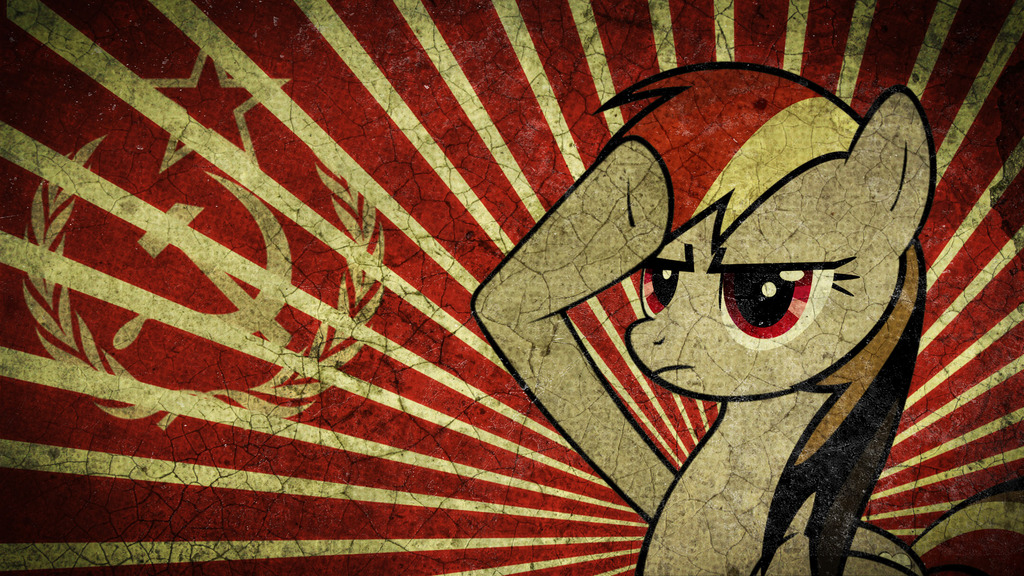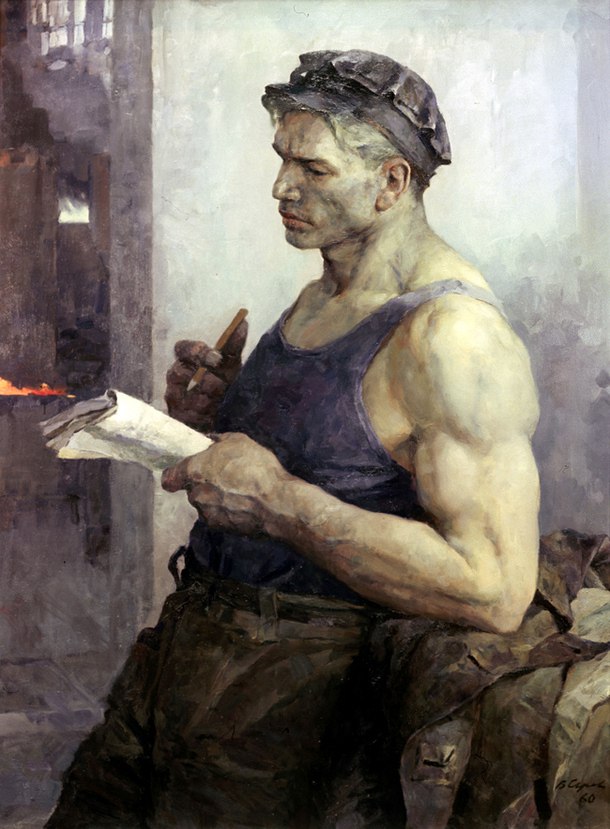Maybe. I recall some American general prediction saying war in 2025 https://www.nbcnews.com/news/military/air-force-general-predicted-war-china-leads-unprecedented-training-exe-rcna93030
China is the only nation in the world with unconditional no first use nuclear strike in the world, which means America or her allies would have to turn the key first (If the cpc hold their word under duress).
Until then expect to see the propaganda efforts turn up, and the rapid dehumanising of the citizens of the peoples republic of China and her allies.
We’re definitely in a cold war of sorts though, with America trying to contain China with those military installments on the string of islands boxing in the PRC ports
It’s quite clever, really.
China knows it would defeat the US in a conventional war. It knows it is also capable of mutually assured destruction through nuclear war. The US knows these things, too. By committing to never striking first, the only options for the US are to encourage someone else to fight China in a conventional war (who will also lose) or to start a nuclear war. But if the US does the latter, it’s fucked. Because it’ll be facing retaliation from China, Russia, and the DPRK. The latter two are unlikely to wait around to see if the US will first-strike them next. They’ll also know that their best chance is co-ordinating the annihilation of the US together.
Top US military brass will have considered this likelihood, too. Maybe it’s less than certain. It’s still massively risky. Half the US imperialists appear to be extremely reckless with human lives – but never with their own lives, and that’s what’s at stake here. Will they gamble with their own lives, with other white lives? Will the military stand by and do as it’s told with a pre-emptive, unprovoked attack? I mean, they’re all racist fucks. But are the suicidal racist fucks?
The clever bit is that China has, as usual, has outmanoeuvred the US and made itself practically impossible to attack.
PS my recollection of the 2025 thing was the US predicting that by 2025, the US would never again be able to match China for military tech. The idea being that if they didn’t defeat China by then, they never could.
Most likely avenues for a war with China imo;
- Most likely, they flood Taiwan with military spending ala ukraine and try to encourage sepratist sentiment
- They try to encourage a sino-vietnam split
- (this is already happening) they manipulate the indonesian/PNG war to prolong it and encourage China to over-extend, sort of like there strategy with the USSR and Afghanistan.
All three of the above are happening already, just if they go ‘all in’ on one of these is yet to be seen, so far its just half assed laying the groundwork type shit.
No 1 is already happening too - https://apnews.com/article/taiwan-military-aid-china-support-06e61a0e0ed787ea120f839ef59885fa
Personally, I think a proxy-like conflict will develop between the two, as the west continues to show aggression towards China. It won’t be surprising if that type of conflict develops. However, I don’t think it will be a cataclysmic WW3, like a lot of people imagine. It would probably look like another Cold War.
Do you think that USA will make China collapse like they did with the USSR?
I doubt it. China saw what happened to the USSR. They’re unlikely to make the same mistakes. China is already integrated into the global market, some would say it’s indispensable. Regions inside China can’t be turned against each other in the same way as SSRs. And while Russia’s middle classes yearned for the living standards of the west, China’s middle classes have an equal or better quality of life than those in the west; it’s middle classes have no material reason to be disgruntled and ask for reforms.
The thing China has to watch out for is its banks, whose power is increasing. We’ll see if it fixes that problem. Still, as China’s imminent collapse is unlikely, it’s something the US will have to work towards in the long term. But every year that passes, China becomes stronger and more resilient while the US becomes weaker.
Maybe there’s some room for it but the US is also racing against climate change. We’re talking about a state that can’t organise its own domestic infrastructural preservation. Every year, the effects of climate change will be getting worse. But while China is preparing for it, the US is not. In ten years time, when Texas is snowed under, California in drought, Florida under water, and Arizona grid-less because the lines melted, too few people will have the attention to do Machiavellian politics with China. At the same time, the more the Chinese see what’s happening, the less likely they are to call for reforms.
One option is internal sabotage. But China has been keen on teaching Marxism and in setting up its institutions to make them harder to undermine than were the USSR’s central organs. Chinese liberals are allowed relatively free rein. Which means they aren’t hiding, making them easier to keep an eye on. I’ll be upset if I’m wrong but I don’t think Khrushchev or Gorbachov would be able to get near power in China.
Deng masterminded one of its greatest tricks: convincing the west that China was already turning capitalist for long enough to become a superpower. It’s a gift that keeps on giving, too, as many western liberals refuse to accept that China is still Marxist. This can only lead to a confused analysis, which will never be the basis of a sound counter-strategy.
EDIT: This may be of interest: Carlos Martinez, Will China suffer the same fate as the Soviet Union?.
The thing China has to watch out for is its banks, whose power is increasing.
What do you mean? The biggest banks in China—indeed, among the world—are state-owned banks, including the PRC’s central bank, the Bank of China.
Good question. It was something Michael Hudson wrote. Essentially, it’s to do with the way that China is financing local projects.
IIRC provincial or regional authorities[The state government] could [print] money [and loan it to local governments] but Chinawon’t allow it[doesn’t do that]. So [local governments] have to [raise finances, which ultimately come from] borrow[ing] from banks. This gives a certain leeway to a sector that is, let’s say, known to get up to shenanigans. Hudson warns that China could be taking a mis-step. It’s likely a subtler argument than I can explain [it was—see below]. I’ll try to find the piece [linked, below].Edit: I got this slightly wrong but as I note that in the comment below with the link and a quote, I didn’t want to correct this comment and later readers to read the corrected version and think it was wrong. So I’ve amended it with strikethroughs and square brackets to show the changes. Old school editing, like.
I think I can understand now. Thanks for the clarification. If you find the piece, please notify me.
So I got it slightly wrong. I think Michael Hudson is very good but his more informal talks aren’t always the clearest. That comes across in the following extract from an interview but it made sense after a couple of read throughs for me (maybe you’ll have more luck the first time):
Who has benefited the most from China’s boom?
[Interviewer]: Let’s talk about China’s debt problem again. Unlike the United States, China has been very cautious, some might say conservative, about expanding its debt. Although China may need more aggressive fiscal and monetary policies to boost the economy, especially now; and the central government’s debt is quite low (some local governments are facing debt risks). China once debated whether China should also engage in fiscal monetization, especially during the 2020 epidemic. But considering the risks, the government ultimately rejected the proposal. What do you think of China’s trade-off between risk prevention and economic stimulus?
Michael Hudson: There are two ways for governments to create money, printing paper money or creating digital money. The use of digital currency, the Chinese government is already doing.
In the West, the state allows private banks to create credit, and the wealthy create credit and lend it to the government. But China does not want to have an independent financial class, so the central government can start printing money; however, local governments in local cities and towns cannot.
So the question is, how do local governments finance spending? This is exactly the problem you mentioned that local governments are really facing. Since local governments at the provincial, municipal, and district levels cannot print money and issue bonds, they either go to the bank to borrow money or collect taxes, but the taxes are not enough, so local governments have adopted a financing model of selling land to real estate developers. This is one aspect of the housing and real estate issues facing China today.
I think there is a simpler solution, the central government is eligible to issue currency that it can loan to local governments for government-sanctioned social spending. In this way, there is no need to rely on land sales for financing.
In fact, local governments can use propaganda to say that we should do what the 19th-century Western classical economists wanted to do, so as to drive down land prices and house prices. Economists such as Adam Smith, John Stuart Mill, and Karl Marx argued that the government could tax the gains from land rents. You don’t want to tax laborers, industrial companies, but you can tax gains on land instead of the price increase of buildings on land.
In this way, people cannot go to the bank to borrow money to speculate on housing prices, because housing prices only reflect the cost of housing construction, and housing construction will not increase land rents.
The only thing that doesn’t want China doing this right now is the banking system. The bank told the government that instead of taxing the land, it would be better to sell it. Banks will lend to developers, and local governments will purchase land from local governments, so that local governments will be able to carry out construction.
However, more and more debts in China are accumulated in banks. In addition to developers, when residents invest more and more funds in purchasing houses, they must also borrow from banks and pay interest.
At this time we found that the banks will be stronger than the government, which is what the banks want. This is basically the core of the current conflict in China. Who profited from China’s prosperity and got richer and richer? Is it the Chinese people and the government, or the bankers and real estate developers? This is the biggest political issue in China this year.
I’m unsure what he means by ‘at this time’, whether this was a study done before the interview or just ‘today’ as in the era that we’re living in.
Edit: for an example of what I mean by unclear, take this quote:
Banks will lend to developers, and local governments will purchase land from local governments, so that local governments will be able to carry out construction.
I’m unsure if this is a misstatement and whether:
- it should read that “Banks will lend to developers, and local [developers] will purchase land from local governments, so that local governments will be able to carry out construction”, or
- local governments are buying and selling land to themselves, treating themselves as developers in order to make borrowing from the bank legal, perhaps, or
- this is a complicated way of saying local governments are mortgaging their property, or
- this is a complicated process whereby one local government borrows money from a bank as a ‘developer’ and purchases land from another local government, and vice versa, again perhaps as a legal loophole.
Let me know if you have any thoughts on this!
I’m genuinely ignorant on this: What makes China Marxist today? From my uneducated standpoint, they do seem to have a lot of the trappings of capitalism. What is their long term plan to advance communism (I’m assuming the current state of affairs is temporary and strategic)
Good question. First thing to note is that I’m no expert. I’ve just become increasingly curious and begun to try to understand the place. Second note: I’ll speak as if you have limited knowledge of Marxism for the benefit of other readers rather than assuming that of you personally.
This may seem pedantic but the answer depends what you mean by Marxism, communism, and capitalism. What counts as a capitalist state? What counts as a communist state? What does it mean to be governed by Marxists?
What does it mean to be Marxist revolutionary?
We call communism the real movement which abolishes the present state of things.
The present state is a class society of global capitalism. The only way to avoid that while it exists is by (extreme) isolationism. (Even then, does one really ‘avoid’ it? Western imperialists won’t leave you alone if you close the borders to them, so….) The only way to abolish global capitalism is world revolution, which takes time.
A revolution is a transformation in the mode of production. Given the interconnectedness of human society, I’d argue it’s impossible to have that revolution for as long as capitalism is the dominant political economy. Is it possible to share the world between socialism and a weaker capitalism? Time will tell. For now: capitalist social relations cannot be avoided.
The early stage of moving away from capitalism towards communism is called socialism. This socialism can be broken into several stages of ‘socialist construction’. Until Deng, China wasn’t quite isolationist but it went through two processes that made external relations difficult:
- conducting a revolution and
- starting the task of socialist construction.
The first was achieved. The landlords and imperialists were kicked out. The second process is well underway. China is in a stage of ‘primitive’ socialism. The CPC seems reluctant to claim too much.
–
Inviting capital inside China
The question is: where is China now i.e. where has it been since Deng’s reforms or the ‘opening up’? These reforms saw China open its borders to foreign capital and letting domestic capital develop. This is the point at which China began to gain, as you say, the ‘trappings of capitalism’.
Why did they do this? During the revolution and the early days of afterwards, China rapidly developed the relations of production (bye bye exploitative relations between foreign imperialists / local landlords and super exploited peasants). But its forces of production only developed so far.
Deng, realising something must be done, applied dialectical and historical materialism to the situation. There’s no such thing as poor socialism but when producing the means of subsistence (food, shelter, clothing, medicine, etc) requires lots of labour-hours because you don’t have machines, computers, reliable energy sources, etc, you simply cannot lift people’s standard of living very far.
The solution was ‘market’ reforms. Foreign capital would be given favourable conditions to invest and build factories, infrastructure, etc, in return for sharing intellectual property with China (the designs and knowledge for building everything).
–
Staying in charge
Since then, China has come to rival the ‘most advanced’ capitalist states in terms of research and development and has surpassed them in terms of productive capacity. This makes China well defended against sanctions. So much so that the US can cut Huawei off from chips and China will brush it off by catching up and making its own chips in a matter of months (if writing for a Chinese paper / a ~couple of~ years, if writing for a western paper).
Which is to say, Deng was right: with ‘capitalist’ development, China could advance more rapidly than without. Does this mean China ‘became’ capitalist?
–
What is a capitalist state?
A capitalist state is one in which ‘capital’ is at the top, as it is in liberal democracies (and fascist attempts at ethno-states). Marx and Engels:
the bourgeoisie has at last, since the establishment of Modern Industry and of the world market, conquered for itself, in the modern representative State, exclusive political sway. The executive of the modern state is but a committee for managing the common affairs of the whole bourgeoisie.
In e.g. France or Japan, it goes: capitalist class > state > working class.
Since opening up (after Xi’s anti-corruption drive, at least), the CPC has remained in charge of the country. In China, the executive—the government—is a ‘committee for managing the affairs of the whole…’ proletariat. According to its constitution:
Article 1 The People’s Republic of China is a socialist state under the people’s democratic dictatorship led by the working class and based on the alliance of workers and peasants.
The socialist system is the basic system of the People’s Republic of China. Disruption of the socialist system by any organization or individual is prohibited.
Article 2 All power in the People’s Republic of China belongs to the people.
The National People’s Congress and the local people’s congresses at various levels are the organs through which the people exercise state power.
The people administer State affairs and manage economic and cultural undertakings and social affairs through various channels and in various ways in accordance with the provisions of law.
It goes, working class > state > capitalist class. The workers control the party, the party controls the state, and the state controls the capitalists.
For evidence of this, we might look at high speed rail (HSR). As you might know if you live in any other capitalist country, affordable, efficient, well-maintained, wide-spreading public transport is not profitable enough for capitalists. They want us all to buy a personal vehicle. They want to tarmac and concrete over everything to build inefficient roads and car parks.
China can avoid the profit-motive trap because it’s run by Marxists who don’t much care for the profit motive, except as a tool for developing the country to prepare it for a higher, wealthier stage of socialism. Which does mean that capitalists aren’t allowed to sell cars and (I assume) lobby for building roads, etc. But their power is limited. They don’t have the power to shut down and torpedo public infrastructure projects as they do in capitalist states.
While the west gets ‘trickle down’ economics, China gets ‘[common prosperity]’(https://www.tandfonline.com/doi/full/10.1080/21598282.2022.2025561)'.
–
Superstructure
In Marxist theory, there are concepts of an economic base and a superstructure. These are connected but separate. The base ‘overdetermines’ the superstructure, meaning that although the superstructure is influential, it cannot, of itself, fundamentally change the base.
Law is often said to belong to the ‘superstructure’. China appears to have built and is continuing to build a socialist legal system. It is on the path and/or road to socialist ‘rule of law’ construction.
Roland Boer has explained this partly means abolishing the public/private distinction in law and governance, which is distinction is characteristic of capitalist law and governance. This is related to and part of China’s ‘democratic centralism’. Both are based on a dialectical materialist (read: Marxist) logic of ‘both this—and that’ rather than a bourgeois logic of ‘either-or or zero-sum’ (Boer, page 59 citing Engels, Dialectics of Nature).
The fact that these moves are possible and coherent suggests that China’s political economy is not capitalist even if it contains elements of capitalism. It would not be possible to achieve the above superstructural changes within a bourgeois, i.e. capitalist state because these changes fundamentally contradict the logic of capital, private property, liberal individualism, etc.
In addition, China has opened Schools of Marxism in its universities. As communists well know: the only thing it really takes to make revolutionaries is to teach them Marxism. That’s why it’s so difficult to achieve in the west. The bourgeois prevent and propagandise against it at every turn. In China they embrace it, encourage specialists to develop Chinese Marxism, and require students to study it.
The BBC isn’t a fan But it has been said that
…Marxism has an incomparable influence on contemporary Chinese politics, culture, and social life that no other humanities or social science disciplines can match.
–
Conclusion
In conclusion, your intuition is correct. There are capitalists in China, which is seen as a necessary step in developing socialism. It does not contradict core Marxist theory. The CPC keeps control of its capitalists by ensuring Marxist knowledge is widespread and maintaining a dictatorship of the proletariat. A higher stage of socialism will appear in time if China continues along its present trajectory and bourgeois social relations whither away.
–
Hopefully this answers your question.
A YouTube link was detected in your comment. Here are links to the same video on Invidious, which is a YouTube frontend that protects your privacy:
We won’t know the outcome but let’s hope that doesn’t happen.
The US cannot afford that since it’s economy would collapse as well
If a full scale war broke out that involved the US taking part, it would be WW3. It seems likely that China would lose at the moment as nothing can compare to the military strength of the US. But it would probably be a tough war that would leave China in a really bad state and the US in a pretty bad state. But then again I know nothing.
The US military LOST to Chinese and Korea troops during the Korean War when Mao, at Kim Il-Sung’s request, sent Chinese military into North Korea to repel the aggressor in the war… the US, who had pushed Kim’s army all the way to the Chinese/Korean border.
“How is that relevant?” I can hear being asked.
Well, for one, it’s funny. The US got its ass handed to it when it was practically at peak military production (less than a decade from WWII ending) and with veteran troops who had seen combat in WWII all over the pacific. Basically, they had the perfect army at the perfect time to absolutely destroy any other army. And yet they kept losing. They had superior weaponry and all that, and using such technology yes, they did eventually fight off Mao’s troops, but the point is do not assume that dumping funding into a military budget means anything beyond having cool tech.
The Iraqi insurgents defeated the US
The Taliban and other Afghan groups defeated the US
The Vietcong defeated the US
US propaganda always spins shit like “we agreed to end operations and leave” when in reality they lost the war. It’s practically the calling card at this point… do a war, make billions for arms manufacturers, devastate an entire country, declare victory and leave. In a few decades wonder why those countries are “shit holes” and consider invading again.
Directly? I doubt it, the US has a miserable track record and even if there are a lot of USians that think they could beat any global power blindfolded, there has to be at least some Pentagon leadership that knows their actual capabilities.
If they have any kind of chance to supply/fund a proxy war, terrorist insurgency, or color revolution they will leap at it though. Even if they know it wouldn’t work, the chance to bleed Chinese resources at the low low cost of billions of dollars and foreigner lives is exciting to them.
On the opposite side, China is not going to start a war if there is any chance of ever avoiding it. China is reticient to involve themselves in foreign military affairs, they prefer to building infrastructure and engage in diplomacy.
What I do expect to see is continued US efforts to commit economic suicide by trying to distance themselves from China economically (and only resulting in making China more and more self-sufficient) as well as an increase in domestic racisim and hate crimes. I already tell all my friends to never visit the US on holiday, because they would be treated like garbage assuming they even lived to make it back home.
As sinophobic and geopolitically ignorant as the average American is, imo most Americans would probably not support a direct military engagement against China given the immense failures of US intervention in the Arab world. Proxy war? Ukraine has shown that Americans will go along with a conflict that involves another country’s soldiers fighting in place of American soldiers, but I think most would still be against a war with China using American troops.
Plus, neoliberalism has wreaked havoc on the US’s ability to mobilize the country for a great power conflict. The government is the most unpopular it has ever been. A reorienting of the economy a la the New Deal is unlikely, and imposing a draft would likely lead to immense civil conflict.
Anything could happen obviously. A truly visceral false flag attack could alter public support. But to me, it feels like the US is more likely to escalate the existing war against its own populace while goading other countries to fight its battles internationally.
I am of the opinion that the US is jockeying for a limited naval conflict with China in the South China Sea in order to disrupt the shipping lanes to which the Chinese economy is (currently) dependent upon.
I think the US is remilitarising its Allies in the Pacific in order to stack the odds in its favour.
I am waiting for the moment when the US manufactures a Gulf of Tokin incident as a pretext. But with that being said, the Century of Humiliation and its lessons are etched into the consciousness of modern Chinese politics so in many respects I would expect China to seek deescalation where possible. Although the US is like a rabid dog so who knows if deescalation would be a viable strategy once there’s blood in the water, so to speak.
Here’s a comment thread where I go into further detail and provide evidence for my position. Note that this comment was written a few days before the news of Huawei’s new chip being used in their latest phone so, although the Chinese semiconductor industry is still lagging behind, China is making strides to catching up on cutting edge chips. Whether this will provide deterrence for China or whether this will cause the US to accelerate its designs for war I do not know.
Good analysis. Here and in the linked comment. Hope China has the sense not to be provoked. But the US is good at getting under one’s skin.
If we do, we will fight to the last Taiwanese. You can count on that.
On China’s side or against China?
I assume they mean the US will fight to the last Taiwanese soldier, aka as a proxy against China
Precisely.
deleted by creator
I imagine that any attacks from China will be just about as targeted as can be to minimise human injury and death. China sees the people of Taiwan as its people. Western states might have no remorse when it comes to making its own people suffer but China has shown that it puts its people first.
The Americans haven’t become that deranged—yet.
Additionally, I doubt that the US will ever engage in a shooting war with a major, nuclear-armed power. Most likely, the US will try to turn Asia-Pacific countries into another Ukraine and have them fight China for it.
Edit: If that fails, then the US will either relinquish its’ neoliberal hegemony and continue the path of industrialization and modernization or it will blanket the world in nuclear fire.
I wouldn’t be surprised if they decided to kill us all before giving up power
I mean I hope not, but maybe they can drum up enough Sinophobia in Australia and Japan and maybe SK to get them to send in troops. It’s way to early to call as of yet, but there are good comments here in this post
It’s unlikely.
The US hasn’t won a war since it partnered with communists. The wars it’s lost since have been against underdeveloped states, attacked at their weakest moments. The US has missed its chance to hit China while it’s down. Now it’ll be a peer conflict and the only peer conflict the US has won was against itself. The only other conflicts it’s won have been clandestine murder campaigns or ones with disproportionately massive firepower advantage. To my knowledge, the US has also lost every hot war against communists that it’s been in, which is why it stopped trying and now goes with other methods. The lesson is that communists can only be defeated by cloak and dagger.
The US is highly unlikely to be able to defeat China in a conventional war. China is highly unlikely to start a war with the US and/or launch troops on US soil. Which means there are only four
realisticoptions. One, the US attacks China on Chinese soil (and loses). Two, the US convinces someone else to either launch an attack (who loses). Three, the US convinces someone else to drag Chinese troops into their homeland (and loses). Either option leads to the same result: China wins. The fourth option is Cold War. I think we’re already in that (and China seems to be winning).Those who run the US know all this. So they’re unlikely to start a hot war. Maybe they can convince someone to start a proxy war. It’s possible, but China isn’t Russia. It’s still run by communists and they act very differently to the Russian capitalists who purposely chose to abandon Marxism. I suspect that China would be (a) faster to prevent a situation like the Donbas from escalating and (b) very difficult to provoke into a proxy war. Maybe history will prove me wrong. I’ll be shocked if it does.
Thanks for this analysis comrade. Can you please elaborate more on how China is winning the cold war?
I’ll try to be brief 😬
The US managed to appear to ‘win’ the first Cold War by dividing the USSR’s leadership and outmanoeuvring it to make mistakes until it dissolved ‘itself’. The USSR wasn’t prepared for the internal betrayals, the consequence of materially improving the living conditions of a large section of the population that wanted more luxury that was possible within the then-arrangements and which created liberals 🤮. At the same time, the US only ‘won’ if the Cold War was against the USSR and not against communists/socialists in general. And as socialism/communism were not – because they cannot – be defeated, the US didn’t really win. It declared an end to history while letting China develop in plain sight 🤣 and having learned the lessons of the USSR’s destruction.
China is becoming self sufficient while the US (and Europe) remain(s) overly dependant on China. The US is so far trying and generally failing at causing rifts between China and the rest of BRICS+ and the BRI members/partners. Under imperialism, it’s all zero sum. A loss to the US is a gain for China. And a win for China is a loss for the US. It works both ways but imperialism can only ignore its contradictions for so long. The US isn’t doing much winning lately. I don’t see that trend changing.
So it’s not just that China is ‘winning’ the Cold War (tbh I was being a little hyperbolic), it’s also that capitalism cannot be sustained for much longer. Even if it finds a way to resolve its ‘ordinary’ class contradictions, capitalists have absolutely no solutions to address, reverse, or respond to climate change (maybe this is as a class contradiction?). That means it’s also a matter of logic and survival: either China is winning or it doesn’t matter; because China winning is socialism winning and China losing is capitalism winning.
If socialism wins, humanity has a future, which could be great or grim but it is a future. If capitalism wins, I don’t know if we have enough time for other socialist powers to develop enough to prevent climate catastrophe. I’m an optimist, though: communism won’t fail us.
(Maybe I also partly answered your question, above?)
the US can’t go to war with China or we’re all dead
The way it works is that the military industrial complex wants constant low scale war with the constant looming threat of a large scale war - but generally, the people in power don’t want a war that’s going to be an actual existential threat, because they’re already on top of the world and have too much to lose. The real danger imo comes from the people at the top riling up the hogs too much, to the point that somebody who believes all the propaganda and is actually crazy enough to do it is able to get into a position to go through with it.
It very obviously goes against the interests of every human being on the planet (and most animals, and even plants) but I will not bet on Americans being rational.
There is no way that the U.S. has the balls to start a direct conflict with China, but a proxy war using Taiwan is another story.
No, even if nuclear war did not instantly break out, it would absolutely and near instantly destroy the economies of both countries, and billions would suffer and die worldwide as a result of starvation and cut supply lines.
It is to profitable for both sides to not go to war.
Even Taiwan is a hard sell.
Why not? Do you think US is sane?
I do, yes
Eh?
I think the USA is insane 🤣
imo not directly, they will proxy it just like ukraine.
about the aukus military alliance (something like that), i think that is a lot of smoke and no fire, just for show, and one thing that people doesn’t count that much but i think it plays a big role, is the racial factor, the west won’t send white people to battle china, they will send other asians, like the people from taiwan, south corea and japan. taiwan is being armed by nato, japan is being rearmed by nato and they still hold a grudge of being kicked out of china during ww2 and korea who is an us military occupation
Japan is less holding a grudge than suffering from the deep fear that China, now powerful once more, will retaliate against them for their WWII atrocities. This belief is discussed above- and below-the-table among their right-wing politicians and intelligentsia. Who also happens to be in power. As China rises, they are increasing anxious at their inability to protect themselves. While extremely unlikely to engage in a hot war with China, Japan is suspected to be taking the opportunity of a loosening american stranglehold to build up their self-defense instead. Even now under immense US pressure, they will not do anything beyond “support” the US forces as a base for operations.
NK will fully counter anything SK does. Nk sees all the recent US/Japanese joint military exercises in the area aimed against China as threatening them (which makes sense, given their history and perspective). Hence their recently becoming more and more vocal in their warnings.
In geopolitics, no country will throw itself into a fight between two superpowers. Apart from some fighty words, which country is jumping at the chance to intervene in Ukraine?
Taiwan is not a real option. It is a small island within direct military reach of the mainland, has 2% of mainland China’s population, 4% of its gpd. Even if NATO gave it all of their weapons, it has zero chances to do any real damage. Hence, the Taiwanese separatist base (33% of population) firmly believes that the US will send in its navy to fight FOR them, and are not at all imagining THEMSELVES as future freedom fighters (Taiwanese army at historic low membership this year). Its major benefit lies in that China has no intentions to destroy Taiwan, so things are unlikely to go too badly there.
nah, japan still has that felling of the good old days of colonial empire, racial supremacy and usa has a lot of influence too, so free japanese cannon fodder to feed the american dream.
i gotta admit i simply forgot drpk, so i don’t known how to begin to speculate what will be their moves, but makes sense what u said, they intervening because nato presence in the pacific is a direct threat to them.
i didn’t went into results and such, i believe china has more than enough capability to handle this. russia is facing basically alone a coalition of 80 countries and it is not even in war mode yet and managed to depleted a lot of nato ammo depos.
china is a heavily industrialized country and has a working force of 800 million people, imagine shifting some of that to produce military equipment, it wont be running out of ammo anytime soon, and also their infrastructure, 2/3 of worlds high speed trains are on china alone, so they can make stuff and believer to any part of the country very quickly.
i guess my biggest worry would be india, since the relations of these countries has been rocky for thousands of years, but there is a good chance i may be wrong since they are making a lot of progress inside brics















